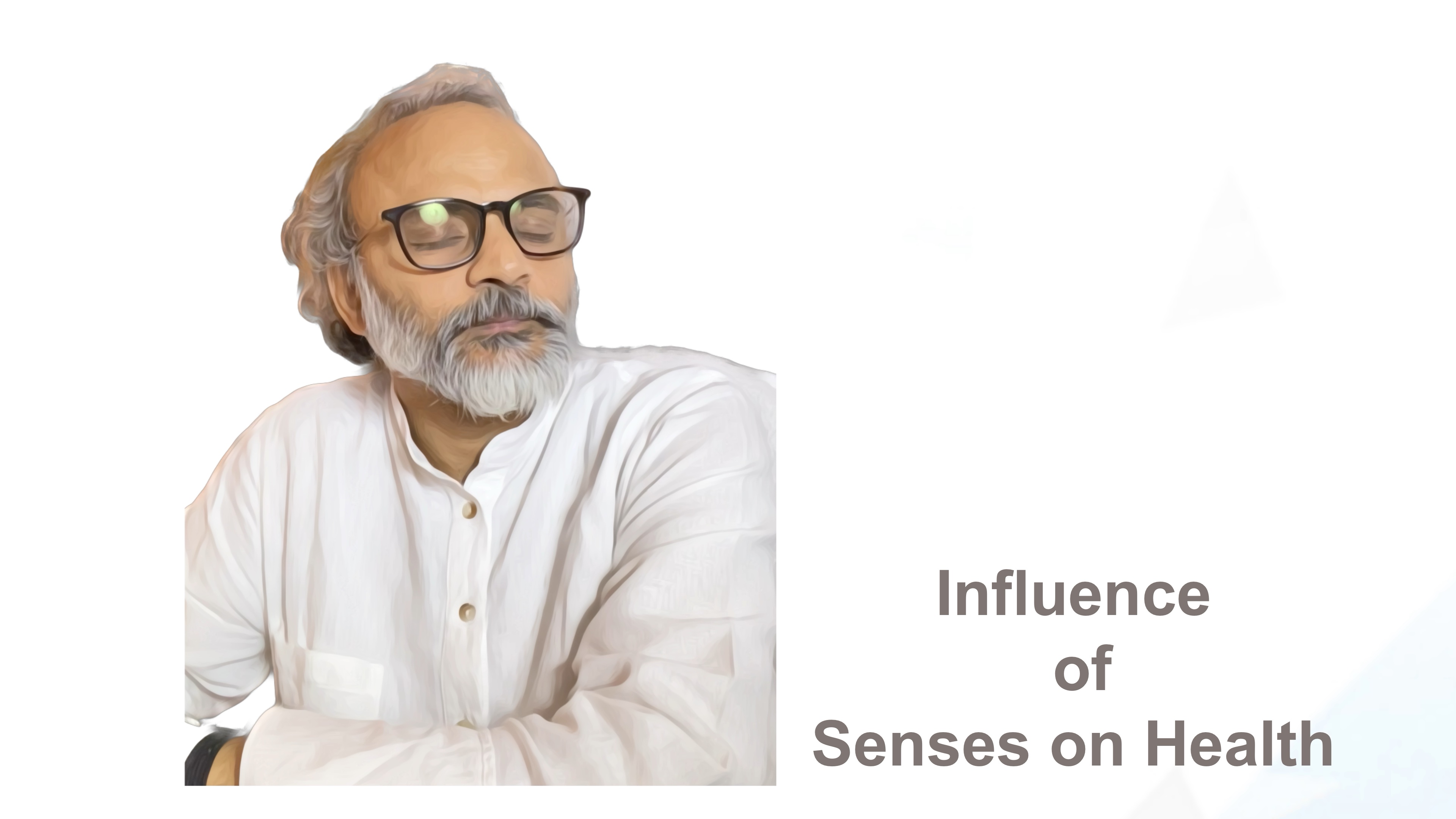
Influence of Senses on Health
2 years ago By Yogi Anoop"Exploring the Influence of Senses' Behaviour on Health: Conversations with Yogi Anoop and his Student"
Student: It's fascinating to hear your perspective on the root cause of diseases and how it relates to our senses, mind, and intellect. Could you elaborate more on the connection between the undeveloped nature of these faculties and the emergence of diseases?
Yogi Anoop: Certainly, From a spiritual standpoint, the root cause of diseases lies within ourselves. When our senses, mind, and intellect are not fully developed or refined, it creates an imbalance that can lead to the manifestation of diseases and their adverse effects on the body. It's not about inheriting diseases from our ancestors, as modern science often suggests. Instead, it's about understanding our own nature and how it influences our well-being.
Student: That's a unique perspective, Yogi Anoopji. You mentioned that the behaviour of our senses is crucial when it comes to performing any action. Could you explain further how the appropriate control of our senses can protect our bodies from diseases?
Yogi Anoop: Certainly. I view our senses as vehicles that allow us to interact with the world around us. If we misuse these vehicles by engaging in actions that are detrimental to our well-being, it creates the potential for physical and mental illnesses in the future. Therefore, it's essential to keep our mind and senses under appropriate control in the present moment. By doing so, we can encounter various experiences and stimuli without causing suffering or harm to ourselves. When our senses are kept in check, the adverse effects on our body will be minimized, and we can protect ourselves from diseases.
Student: That's an interesting analogy. It's fascinating to think of our senses as vehicles that require careful handling. Can you provide an example to illustrate this concept further?
Yogi Anoop: Certainly. Let's take the example of Muni Tarun Sagar Ji, a great spiritual Master. While he possessed profound knowledge, during his discourses, there was a rapid rise and fall of intensity in his senses, particularly in his throat and eyes. This intense fluctuation had adverse effects on his body, resulting in emaciation and eventual illness. The key point here is not to question his knowledge but to understand that the behaviour of his senses during his speeches led to unnecessary pressure and tension in his throat, ultimately affecting his health.
A similar situation occurred with Shri Ramakrishna Paramahansa Ji and Swami Vivekananda Ji. Again, we are not questioning their knowledge, but rather focusing on the movement and behaviour of their senses. Excessive strain on their senses during their spiritual activities had repercussions on their physical well-being.
Student: I see, guruji. So, it's not only about the knowledge or intentions behind our actions but also about how we manage and control our senses during those actions. It's intriguing to consider the impact of the movement of our senses on our overall health. Can you share any observations regarding people who have well-functioning senses and how it relates to their longevity?
Yogi Anoop: Absolutely. I have also observed many individuals who may not be morally upright but possess well-functioning senses. These individuals tend to live long lives, indicating the importance of maintaining a balanced and relaxed state of the senses. Excessive rise and fall in our senses can lead to imbalances and attachments, which can have adverse effects on our memory and well-being.
Recent Blog
Copyright - by Yogi Anoop Academy
